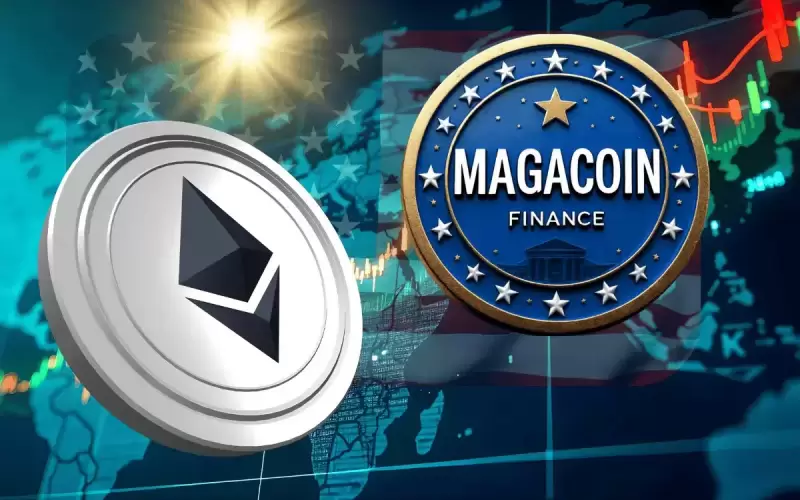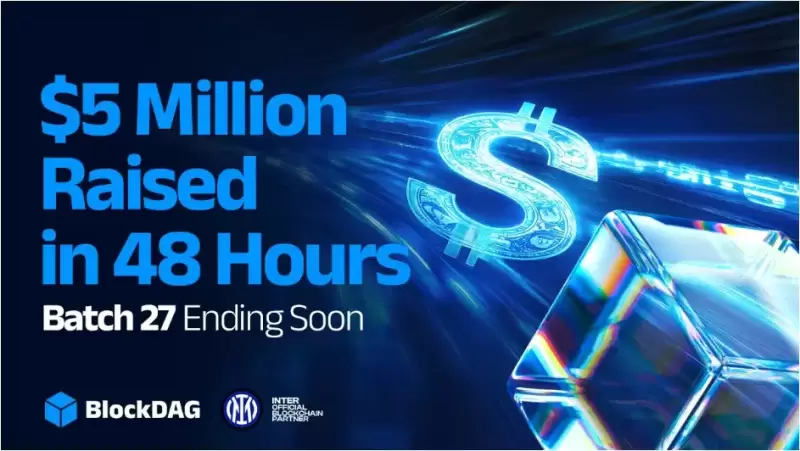 |
|
 |
|
 |
|
 |
|
 |
|
 |
|
 |
|
 |
|
 |
|
 |
|
 |
|
 |
|
 |
|
 |
|
 |
|
Cryptocurrency News Articles
Ripple vs. SEC: A Landmark Legal Battle with Far-Reaching Implications
Apr 23, 2024 at 05:36 pm
The Ripple SEC lawsuit, initiated in 2020, has significantly impacted the cryptocurrency industry. The SEC alleges that Ripple Labs violated federal security laws by conducting an unregistered securities offering with its XRP token. Ripple disputes this, claiming XRP is a currency not subject to securities regulation. The case has progressed through key events including Ripple's removal from Coinbase, SEC requests for prompt hearings, and court rulings affirming XRP's currency value and utility. Expert discovery and motions for summary judgment have been filed, indicating the legal proceedings are reaching a crucial stage.

Ripple vs. SEC: A Saga of Legal Battles and Regulatory Implications
The legal battle between Ripple Labs and the Securities and Exchange Commission (SEC) has emerged as a seminal case in the burgeoning cryptocurrency industry. This protracted litigation, initiated in 2020, has reverberated throughout the crypto ecosystem, shaping regulatory frameworks and testing the boundaries of digital asset classification. This comprehensive analysis delves into the intricate timeline of the XRP SEC case, scrutinizing pivotal events, judicial rulings, and the profound implications for both parties and the broader cryptocurrency community.
Genesis: The Birth of the Ripple SEC Lawsuit
In 2012, Ripple Labs embarked on an ambitious mission to revolutionize global remittances through its XRP cryptocurrency and RippleNet network. However, suspicions surrounding the nature of XRP token sales eventually culminated in the SEC filing a lawsuit in 2020. The SEC's central contention was that Ripple had violated federal securities laws by conducting an unregistered securities offering.
The SEC's case centered on the initial sale of XRP, which it characterized as akin to the offering of an unregistered initial public offering (IPO) of securities. Ripple's spirited defense asserted that XRP possessed intrinsic value as a currency and utility, thereby exempting it from securities regulation. Further, Ripple contested the SEC's claims of inadequate prior notice regarding XRP's classification and raised concerns about potential bias in applying securities regulations to digital currencies.
The Legal Battle Unfolds: A Chronology of Key Events
The legal dispute between Ripple and the SEC has been punctuated by a series of pivotal developments, each shaping the trajectory of the ongoing lawsuit:
- December 21, 2020: The SEC formally initiated legal action against Ripple Labs, alleging that the company, CEO Brad Garlinghouse, and co-founder Chris Larsen had engaged in an unregistered securities offering worth $1.3 billion through the sale of XRP. Garlinghouse resolutely announced Ripple's determination to vigorously contest the SEC's allegations.
- December 28, 2020: Coinbase, one of the world's leading cryptocurrency exchanges, announced its decision to delist XRP from its platform. Coinbase cited the SEC's legal action against Ripple Labs as a primary driver behind this move.
- March 3, 2021: Ripple filed a counterclaim, arguing that the SEC had failed to provide adequate notice that XRP transactions were illegal or that the SEC would subsequently classify XRP as an investment contract. Ripple emphasized that prior to the SEC's complaint, numerous market participants had traded XRP for years under the assumption that it did not constitute an investment contract.
- March 8, 2021: The SEC requested an expedited hearing to address the issue of fair notice and other procedural matters raised by Ripple and its executives.
- March 22, 2021: Judge Sarah Netburn ruled that XRP possesses value as a currency and utility, distinguishing it from cryptocurrencies such as Bitcoin and Ethereum. This decision highlighted the nuanced spectrum of digital assets.
- April 13, 2021: Commissioner Hester Peirce of the SEC introduced Token Safe Harbor Proposal 2.0, which sought to provide a three-year grace period to developers, shielding them from securities laws while they gained a clearer understanding of their roles in decentralized networks.
- June 14, 2021: The court granted an extension to the SEC, allowing it until August 31, 2021, to disclose its internal policies regarding cryptocurrency trading. This extension provided additional time for the SEC to reveal its internal operations and potential conflicts of interest.
- August 31, 2021: The SEC faced a deadline to disclose its internal policies regarding cryptocurrency trading. This disclosure aimed to illuminate the SEC's operational practices and their potential bearing on the case.
- October 15, 2021: A deadline was set for expert discovery, intended to gather insights from experts in cryptography and securities. This process sought to provide additional clarity and expert perspectives on the case.
- January 24, 2022: Judge Netburn extended the deadline for the SEC to appeal her previous ruling, which mandated Ripple Labs to disclose certain confidential government documents, to February 17.
- September 17, 2022: Both the SEC and Ripple Labs filed formal motions for summary judgment, marking a significant procedural milestone. These motions outlined each party's arguments and positions on the case.
- September 21, 2022: The court approved an amicus brief filed by the Chamber of Digital Commerce, supporting Ripple's position that the SEC's lawsuit oversteps its regulatory authority.
The Ripple SEC Lawsuit: A Harbinger of Regulatory Transformation
The ongoing Ripple SEC lawsuit transcends the confines of a single legal dispute. It has emerged as a touchstone for broader regulatory debates within the cryptocurrency industry. The outcome of the case will have far-reaching implications, shaping the regulatory landscape for digital assets and potentially impacting their adoption and growth.
The SEC's categorization of XRP as a security has raised fundamental questions about the regulatory framework for digital assets. The classification of XRP as a security would subject it to a comprehensive set of regulations, including registration, disclosure, and reporting requirements. This would significantly increase the regulatory burden on Ripple and potentially hamper the development and adoption of XRP.
Conversely, if the court rules in favor of Ripple and deems XRP to be a currency or utility, it would represent a significant victory for the cryptocurrency industry. Such a ruling would provide regulatory clarity and reduce uncertainty, fostering innovation and investment in the broader digital asset space.
The Ripple SEC lawsuit has also drawn attention to the need for clear and consistent regulatory guidance for digital assets. The absence of a comprehensive and tailored regulatory framework has led to confusion and uncertainty among market participants. The outcome of this case could provide much-needed clarity and pave the way for the development of a robust regulatory framework that fosters innovation while protecting investors.
Ripple vs. SEC: A Pivotal Case for the Cryptocurrency Industry
The Ripple SEC lawsuit has captivated the cryptocurrency industry, with its outcome poised to have far-reaching consequences for the regulatory landscape and the adoption of digital assets. The ongoing legal battle has highlighted the need for clear and consistent regulatory frameworks while also raising fundamental questions about the classification of digital assets. The ultimate resolution of this case will undoubtedly shape the future of the cryptocurrency industry and set a precedent for the regulation of digital assets worldwide.
Disclaimer:info@kdj.com
The information provided is not trading advice. kdj.com does not assume any responsibility for any investments made based on the information provided in this article. Cryptocurrencies are highly volatile and it is highly recommended that you invest with caution after thorough research!
If you believe that the content used on this website infringes your copyright, please contact us immediately (info@kdj.com) and we will delete it promptly.
-

- Ethereum (ETH) Shows Signs of Recovery, But Faces Resistance at $2,000
- Apr 03, 2025 at 01:45 pm
- ETH is currently trading at $1,901, with analysts pointing to a potential bull run if the asset can reclaim key resistance levels. The Relative Strength Index (RSI) is signaling a possible reversal, while trading volumes are climbing—suggesting an increase in buying pressure.
-

-

-

- The internet is currently experiencing a storm of Ghibli-style AI-generated images.
- Apr 03, 2025 at 01:40 pm
- When ChatGPT announced this, the company also did not expect an overwhelming response. But, the other side of the coin is that many digital activists are raising privacy concerns over the same.
-

-

-

-

-





























































